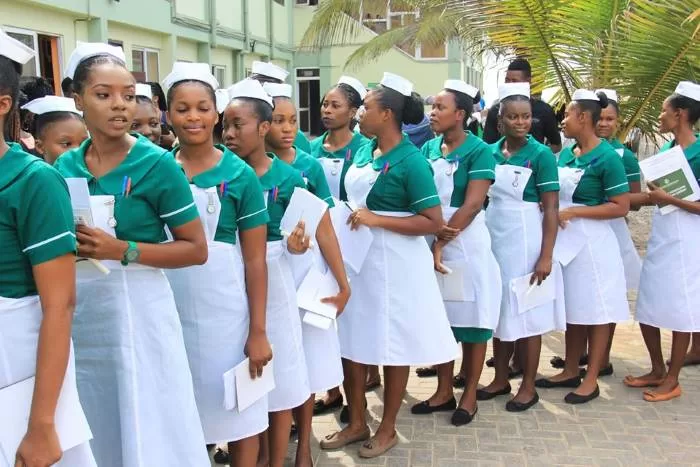Ghana is among the first five destinations of choice for the recruitment of nurses and midwives to other countries, Mr. Kwaku Agyeman-Manu, Minister of Health has said.
He attributed the phenomenon to the exceptionally high quality of training regime of health personnel that is enticing other countries, thereby surging brain drain in the sector.
Mr. Agyeman-Manu made these known in a speech read on his behalf at the 75th Anniversary launch of the Cape Coast Nursing and Midwifery Training College on Thursday.
It was on the theme: “75 years of quality health training: Repositioning to achieve universal health coverage.”
He said: “As you all know, the world is currently experiencing a global phenomenon of migration due to shortages of nurses in high-income countries.”
Though health workers migration is a global phenomenon, he assured that the Government is putting in place stringent measures to curb the mass migration of health workers to prevent its dire implication for Ghana.
That includes the production, deployment, retention, and reintegration of health workforce to meet local and global demands.
“Our policy direction is to manage migration, where government enters into bilateral arrangements with countries who are interested in our nurses.
“This will ensure more ethical and mutual benefit for the individuals and our countries,” Mr. Agyeman-Manu said.
A part of the measures, he stated that over the last seven years, the Government had on average trained 30,000 nurses and midwives annually to ensure that we meet the national and global shortages of nurses and midwives.
In line with this, he said the Ministry had initiated processes to establish Midwifery and Nursing Educational and Practice Centres of Excellence to reposition such schools to become world-class institutions with global standards.
The Government has also aggressively expanded access in terms of massive infrastructure projects across the country, including the modernization and digitization of operations of hospitals, improved NHIS coverage to include childhood cancers, family planning and the ongoing “Agenda 111 Projects.”
The overall aim was hinged on the national vision towards Universal Health Care (UHC) – to ensure that no one was left behind.
That is to holistically provide promotive, preventive, curative, palliative, rehabilitative and mental health care services to people living in Ghana without any financial barrier at the point of accessing healthcare.
“The foundation of achieving UHC, is therefore embedded in the production and supply of quality nursing and midwifery professionals through quality training using modern pedagogy.
“We cannot achieve UHC without nurses and midwives since you form the majority caucus of the health workforce, about 60 per cent.
Mrs. Jemima Fati-Ackon, the Principal of the College said the school had made remarkable feats over the years, building a reputation as an academically and professionally strong institution, making it the preferred choice for most nursing students in Ghana.
However, it was confronted with challenges including adequate funding to implement programmes to contribute towards attaining UHC.
Others are inadequate infrastructure, high cost of maintaining the existing infrastructure due to proximity to the Atlantic Ocean, inadequate skilled human resources personnel and stalled or delay in completing ongoing projects.


















